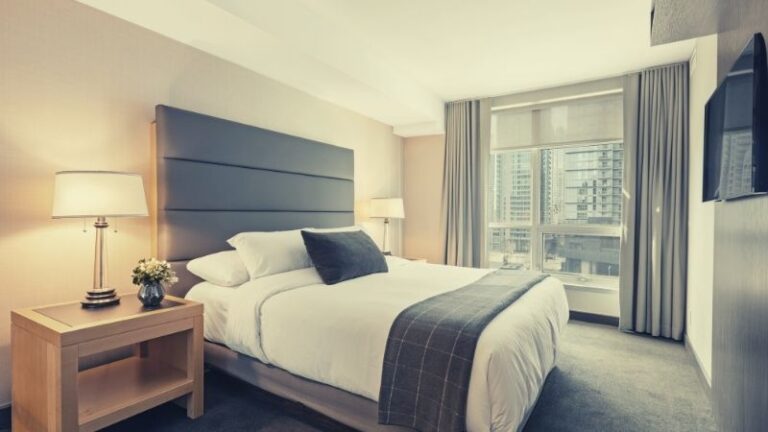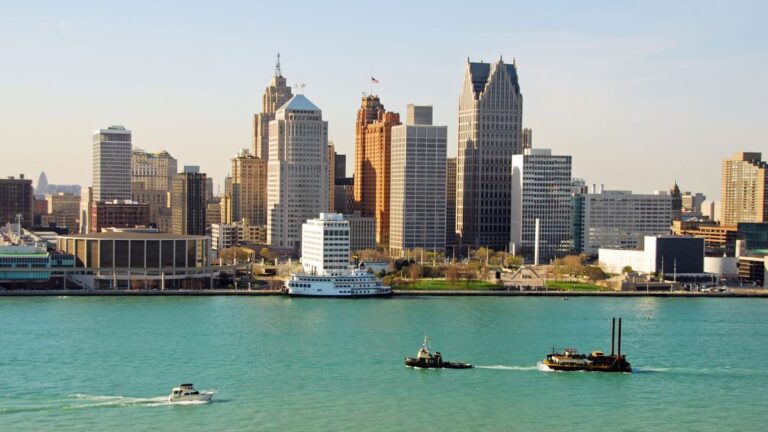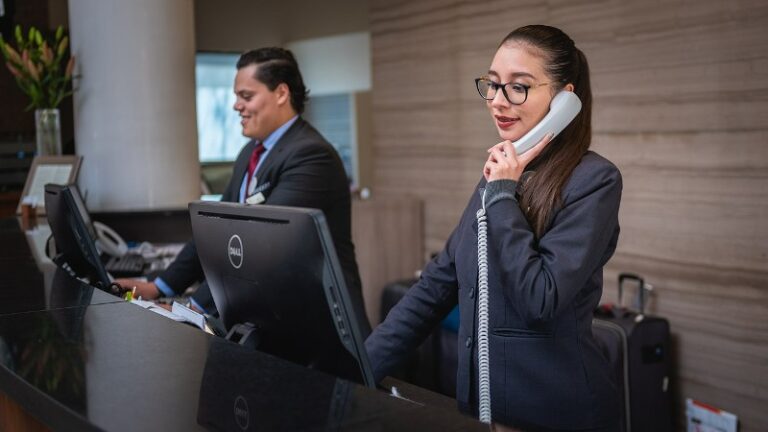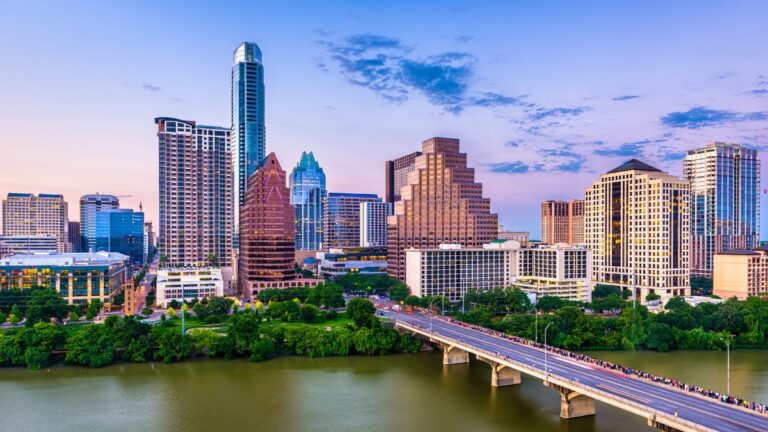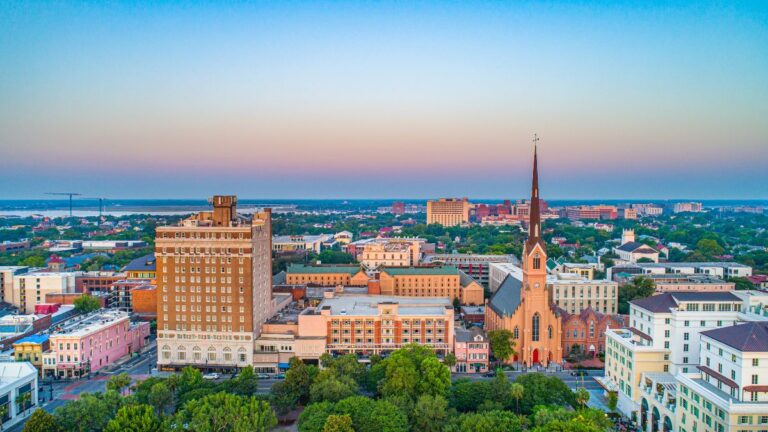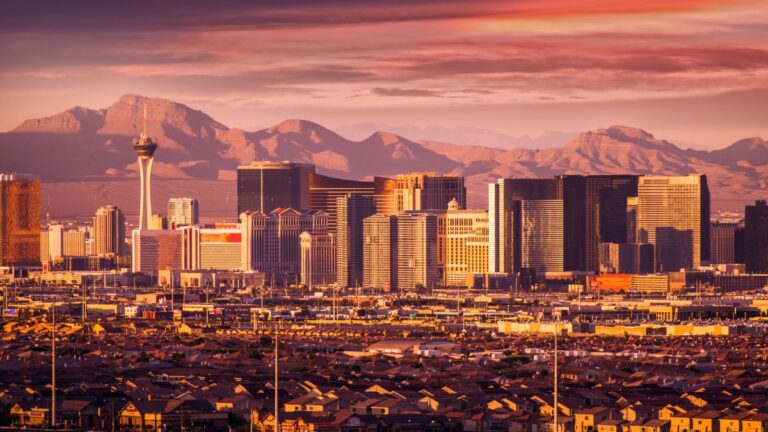Are Hotel Rooms Allowed To Have Cameras? Is It Legal
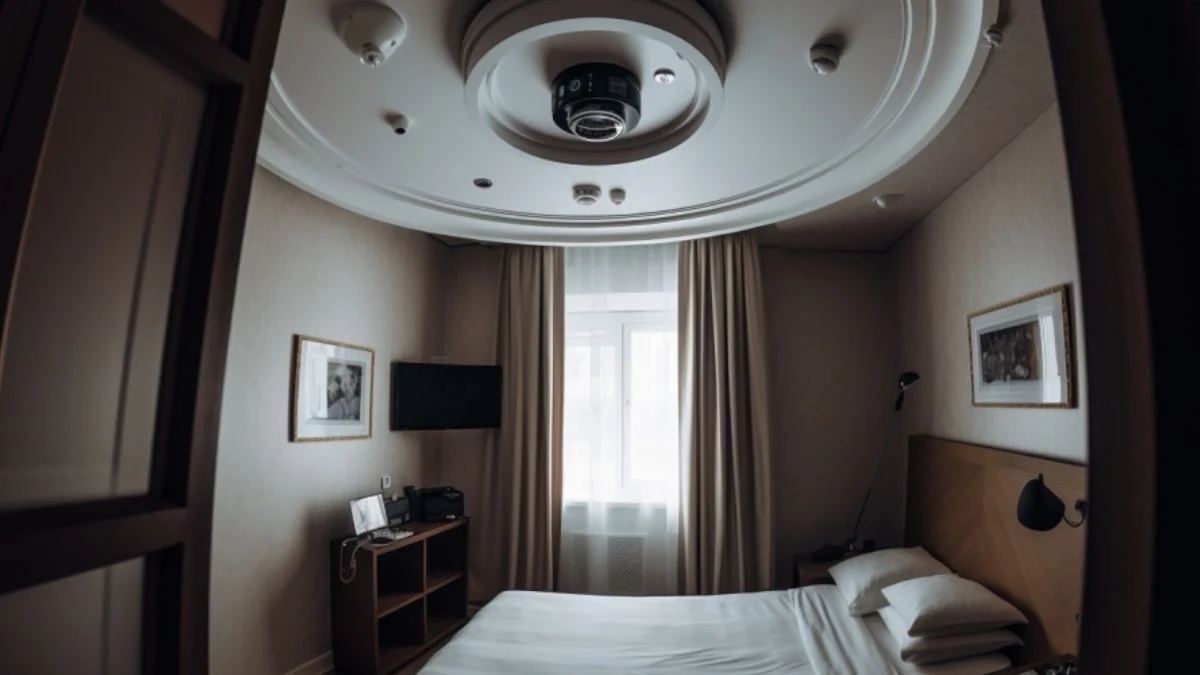
As participants in Amazon Associates and other programs, we earn from qualifying purchases. This comes at no additional cost to you. For more details, see our Affiliate Disclosure.
The use of cameras in hotel rooms is a topic that has raised concerns among travelers. Many people wonder if hotels are allowed to have cameras in their rooms and if it is legal. The answer to this question is not straightforward as it varies depending on the state and federal laws.
In the United States, there is no specific federal law that regulates the use of cameras in hotel rooms. However, there are national consent and privacy laws that apply to video surveillance. Additionally, about 13 states have made it illegal to install or use cameras in private places, such as hotel rooms, without authorization from those being recorded.
This means that hotels and their management companies could face major legal problems if they were found to be using cameras in guest rooms without consent.
The Concerns Surrounding Cameras in Hotel Rooms
The use of cameras in hotel rooms raises significant privacy concerns. While security cameras in public areas of a hotel can help ensure the safety of guests and staff, cameras within private rooms are generally considered a violation of privacy. This is because hotel rooms are expected to be private spaces where guests can relax and feel secure.
The unauthorized use of cameras in these spaces can lead to the invasion of personal privacy, potential misuse of personal information, and even illegal activities such as voyeurism or blackmail.
Furthermore, the discovery of hidden cameras in hotel rooms can severely damage a hotel’s reputation. Guests trust hotels to provide a safe and private environment, and any breach of this trust can lead to negative reviews, loss of business, and potential legal action.
It’s also worth noting that in many jurisdictions, the use of hidden cameras in places where individuals have a reasonable expectation of privacy is illegal. Therefore, hotels must be extremely cautious and transparent about their use of surveillance technology to avoid violating privacy laws and regulations.
Federal and State Laws on Camera Use in Private Places
There is no specific federal law governing the use of security cameras. However, national laws around privacy and consent do apply. For instance, it’s generally legal to install a residential security camera and record video, but US citizens are also guaranteed a reasonable expectation of privacy. This means you can’t record people in places that are typically considered private, such as bathrooms, bedrooms, changing rooms, locker rooms, and hotel rooms.
Consent laws are also important. On the national level, it’s legal to record a conversation if you have at least one person’s consent. This is known as the “one-party consent” law. However, this law doesn’t cover video surveillance. If a conversation is involved, the rule applies. Because most security cameras record audio as well as video, you should operate your camera with the one-party consent law in mind.
State laws can be more complex. Currently, 15 states have specific security camera laws. In states without specific laws, you should check with your local city and county government to make sure it’s okay to install a camera.
Hidden cameras are generally allowed as long as they adhere to the reasonable expectation of privacy and one-party consent rules. However, 11 of the 15 states with home security camera laws explicitly allow them—with certain conditions.
Privacy issues can arise when a camera is aimed at a neighbor’s house or when law enforcement demands your video footage. The article answers some commonly asked questions about these issues.
Here is a breakdown of the laws in the 15 states with specific security camera laws as per the SafeWise article:
| State | Public Places Allowed | Private Places Allowed | Hidden Cameras Allowed | Consent Required |
|---|---|---|---|---|
| Alabama | Yes | No | Yes | No |
| Arkansas | Yes | Yes | No | In private places |
| California* | Yes | Yes | No | No |
| Delaware | Yes | No | With consent | Yes |
| Florida | Yes | No | Yes | No |
| Georgia* | Yes | Yes | No | No |
| Hawaii | Yes | Yes | No | Yes |
| Kansas | Yes | No | With consent | Yes |
| Maine | Yes | No | With consent | Yes |
| Michigan | Yes | With consent | With consent | Yes |
| Minnesota | Yes | No | Yes | No |
| New Hampshire | Yes | No | With consent | Yes |
| South Dakota | Yes | No | With consent | Yes |
| Tennessee | Yes | With consent | With consent | Yes |
| Utah | Yes | With consent | With consent | Yes |
Note:
- In California, it’s illegal to make a video recording of any communication considered confidential, regardless of consent.
- Georgia allows video surveillance in private and public settings, but the cameras must be in plain sight.
The Consequences for Hotels Breaking the Law
Hotels that break the law, particularly in relation to privacy violations such as unauthorized use of cameras in guest rooms, can face severe consequences. Here are some potential repercussions:
- Legal Penalties: If a hotel is found to be in violation of privacy laws, it could face significant legal penalties. This could include fines, injunctions, and potentially even criminal charges depending on the severity of the violation and the jurisdiction.
- Civil Lawsuits: Guests who have had their privacy violated may choose to file civil lawsuits against the hotel. If successful, these lawsuits can result in substantial monetary damages being awarded to the plaintiff. In some cases, class action lawsuits may be filed if multiple guests have been affected.
- Reputation Damage: News of privacy violations can severely damage a hotel’s reputation. Negative publicity can lead to a loss of business as potential guests choose to stay elsewhere due to concerns about their privacy.
- Loss of Licenses and Permits: In some cases, serious or repeated violations of the law can result in a hotel losing the licenses and permits it needs to operate. This could effectively force the hotel to close.
- Increased Regulation and Oversight: A hotel that has been found to be in violation of the law may be subject to increased regulation and oversight from government agencies. This can result in additional costs and operational challenges for the hotel.
It’s important to note that the specific consequences can vary depending on the nature of the violation, the laws of the specific jurisdiction, and other factors. As such, hotels should take all necessary steps to ensure they are in compliance with all relevant laws and regulations to avoid these potential consequences.
How to Check for Hidden Cameras in Your Hotel Room
Checking for hidden cameras in your hotel room involves a few steps. Here’s a guide on how to do it:
- Physical Inspection: Start with a thorough visual inspection of the room. Look for anything unusual or out of place. Pay special attention to items that could easily hide a small camera, such as smoke detectors, light fixtures, alarm clocks, coffee pots, wall decor, and electrical outlets. Check for any holes or suspicious-looking objects.
- Check Mirrors: To test if a mirror is two-way, place your fingertip against the mirror. If there’s a gap between your finger and the reflection, it’s likely a regular mirror. If your finger and the reflection touch with no space in between, it could be a two-way mirror.
- Use a Flashlight: Shining a flashlight around the room can help you find camera lenses. Turn off the lights in the room and turn on the flashlight. Slowly scan the room with the light and look for reflections. A camera lens will often reflect light and may reveal its location.
- Use a Camera Detector: If you want to be extra thorough, you can use a hidden camera detector. These devices can detect the lens of a camera by using a red light that will reflect off the lens. They can be purchased online.
- Check for Wi-Fi Devices: Many hidden cameras work by connecting to the internet. You can use your phone or laptop to check for any unusual devices connected to the local Wi-Fi network.
- Use a Signal Detector: Some hidden cameras use radio frequencies to transmit data. A radio frequency (RF) signal detector can pick up these signals and alert you to the presence of a hidden camera.
Remember, if you find a hidden camera in your hotel room, it’s important to contact hotel management and local law enforcement immediately. It’s illegal in many places to install hidden cameras in areas where people have a reasonable expectation of privacy.
What to Do if You Find a Camera in Your Hotel Room
If you find a hidden camera in your hotel room, it’s important to take the following steps:
- Do Not Touch the Camera: It’s important not to disturb the camera. It could be valuable evidence if a crime has been committed.
- Document the Evidence: Take photos or video of the camera with your phone, making sure to capture its location and any other relevant details. This will be useful evidence if you need to report the incident.
- Contact Hotel Management: Inform the hotel management about the camera as soon as possible. They should take immediate action to investigate the situation.
- Contact the Police: If you believe your privacy has been violated, contact the local police to report the incident. They can guide you on the next steps and potentially launch an investigation.
- Document Your Interactions: Keep a record of all your interactions with hotel staff and law enforcement. This could be important if you decide to take legal action later.
- Contact a Lawyer: If you feel your privacy rights have been violated, you may want to consult with a lawyer. They can advise you on whether you have a case and what steps to take next.
- Report to Local Tourism Board or Regulatory Authority: If the hotel does not handle the situation appropriately, you can report the incident to the local tourism board or hotel regulatory authority.
Remember, it’s illegal in many jurisdictions to install hidden cameras in areas where people have a reasonable expectation of privacy, such as hotel rooms. You have the right to feel safe and secure in your hotel room.
Protecting Your Privacy in Hotel Rooms
Protecting your privacy in a hotel room involves a combination of vigilance and taking proactive steps. Here are some tips:
- Inspect the Room: Upon arrival, conduct a thorough inspection of your room. Look for anything unusual or out of place, such as strange devices, wires, or small holes in walls or objects. Pay particular attention to areas where a camera might be hidden, such as in smoke detectors, light fixtures, alarm clocks, or decorative items.
- Check for Two-Way Mirrors: Use the fingertip test to check if mirrors in your room are two-way. If there’s a gap between your finger and its reflection, it’s likely a regular mirror. If your finger and the reflection touch directly, it could be a two-way mirror.
- Cover the Peephole: If your room has a door with a peephole, consider covering it when you’re inside to prevent anyone from looking in.
- Use the Do Not Disturb Sign: If you’re concerned about staff entering your room when you’re not there, use the “Do Not Disturb” sign. You can also request that housekeeping only come when you’re in the room.
- Secure Your Wi-Fi: If you’re using the hotel’s Wi-Fi, make sure it’s a secure network. Avoid entering sensitive information like credit card numbers or passwords unless you’re on a secure, private network. Consider using a VPN for added security.
- Use a Privacy App: There are apps available that can detect hidden cameras and microphones in your room. These can add an extra layer of security.
- Report Any Concerns: If you find anything suspicious, report it to hotel management immediately. If they don’t take appropriate action, you may want to consider finding another place to stay.
Your privacy is important, and you have the right to feel safe and secure in your hotel room.

